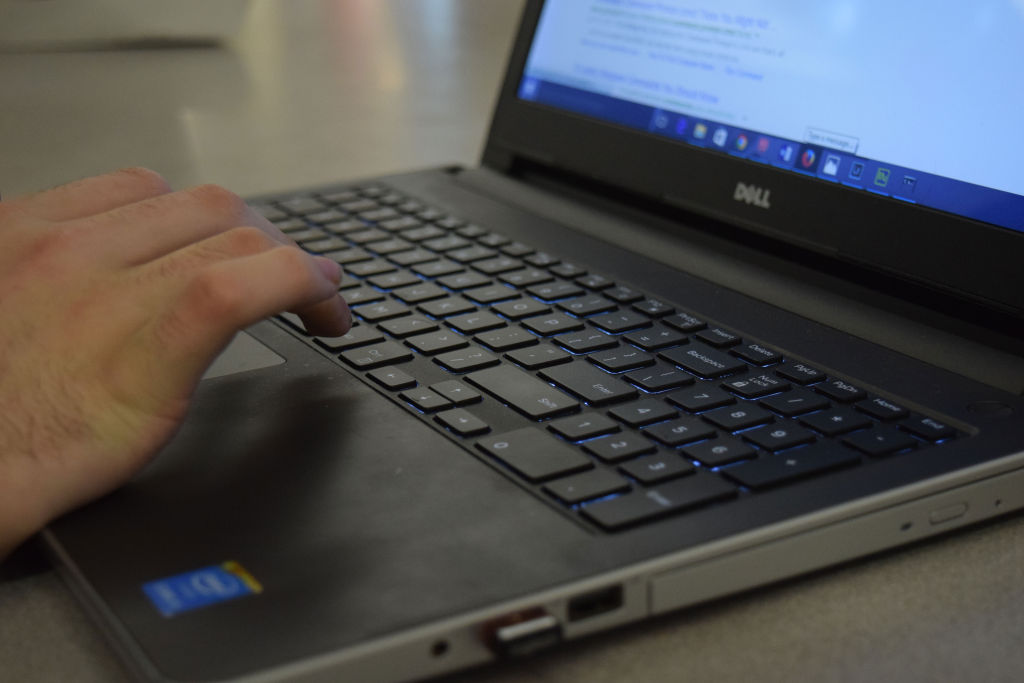
Algonquin experiences anywhere from 10,000 to 100,000 attacks on its firewall every day, according to Craig Delmage, Algonquin’s Chief Information Security Officer.
“I really have not seen this amount of risk in the last few years” said Delmage. “It’s definitely getting worse.”
Cyber security threats are so widespread that, according to Delmage, every organisation and individual is at risk, including Algonquin and its students.
In general, from 2009 to 2014 there was an average increase of 66 per cent of cyber security attacks.
But what exactly is cyber security?
Simply put, it’s a buzzword that describes the current threats that surround our IT systems. Threats can include anything from hacking, glitches, environmental threats, insider threats and human error.
The college in particular has seen perimeter attacks, phishing attacks, malware, advanced malware and advanced threats all ramping at an increased rate.
Delmage has been at the college for three years, and has previously held positions in the federal government. His role at the college is to raise awareness regarding cyber security and data privacy issues and to assist the college’s departments in making sure that their information is locked away safe.
The college has taken steps to keep its information safe by implementing security architecture to support its network architecture, making sure every employee has anti-malware software, firewalls administered by ITS and information security that is now starting to grow within ITS.
But while Algonquin is doing a great deal to protect itself from threats, just like any organisation it has had slip-ups.
Last summer, Algonquin’s server was attacked by hackers and information was put at risk. They didn’t have enough evidence to prove information had been stolen, but the college took precautionary measures and gave the students who were affected identity theft protection monitoring services.
Other attacks that have been big enough to catch public attention include the Sony Co. attack over the movie The Interview, Ashley Madison’s information leak, and various other attacks on Target, Home Depot, Ebay and even the City of Ottawa and Ottawa Police websites.
However, massive corporations aren’t the only target for malicious attacks. “Most students will bring an average of three devices,” says Craig Delmage.
And while risk is at an all-time high, there are precautions that, Delmage says, students can take in order to protect themselves.
Making sure you have good anti-malware on your computer is a good start, as it protects against 40 per cent of signature based threats. Being weary of emails, downloads and websites that you don’t recognize or trust is also very important. Delmage says to make sure the website that you go to have the green lock at the left of the URL in order to be sure the website is “is what it says it is.”
Your computers aren’t the only devices to keep safe though, your phones are equally at risk. Delmage says that 50 per cent of apps currently downloadable on your smartphones have some sort of nefarious purpose. So making sure that precautionary steps are taken on both platforms is essential to protecting yourself.
The cyber security threat is going to get worse before it gets better, according to Delmage. A fast escalation in underground hacking communities is being seen, but Delmage says the industry will eventually get a handle on it.
“We will re-architect the way we work around the internet to better protect ourselves,” said Delmage. But it will take time to reach that point because “we’re currently in the midst of an asymmetric war,” said Delmage. “(The) bad guys have an infinite amount of resources and really, we don’t.”


